Reflecting upon learning is critical. It is also tough. Learners are more at ease with the present or the future and struggle to look backwards. Why do we have to look at this piece of writing AGAIN? We’ve finished it! The art of evaluating the work you’ve done, understanding the skills you utilised and auditing what you learnt is a tough process, but one worth its weight in gold.
Why don’t we do more of this in the classroom? Time is an issue. There’s so much content to slog through, reflections fall off the edge of the cliff. Battling learners trying to convince them of the benefits is also tough, and one which requires energy to face continually. Can these problems be solved?
The investment of time and energy is a worthwhile one. Reflections help us to construct mental models that interconnect our prior learning. Lack of reflection means students see learning as isolated incidents, a world view psychologists call an “episodic grip of reality”. A lack of reflection removes meaning. Providing time and means of reflection helps learners construct the meaning of each learning episode, ensuring they absorb it into their being.
Effective reflection requires learners to think about how their learning applies to other contexts; how does this knowledge extend beyond the current situation? The ability to understand what we’ve learnt and apply it to different situations creates value in the learning process. Isolated knowledge has no value. Transferrable knowledge and skills is the pot of gold.
Teachers who promote reflections in the classroom help learners engage with the learning process; they help young people make meaning out of the content they are learning. I’d argue that a teacher’s prime responsibility is to promote understanding of metacognition – i.e. learning how to learn and understanding the skills you are building through learning. In a fast-paced world, it is this understanding that will help create lifelong learners with a growth mindset.
Why is all this important? Well, in crude terms, the new Ofsted framework demands it. A core requirement is that learners are aware of the skills and knowledge they are developing. The only way to do this is through a rigorous reflective practice. Building a reflective school must be core to your approach. Taking Ofsted out of the equation, we all intrinsically know that reflection is the secret sauce to learning. We know great teachers create the space for learners to reflect and ask probing questions in order to develop this understanding further. We will all improve as teachers if we allow the time for reflections.
Yet the cold, hard reality is that: curricula are jam packed, time is short, duties are expanding. How do we find the time? Kloodle can help make this process easier.
Here’s how to set up a reflection on Kloodle: –
Log in as a teacher and click Skills > Awards
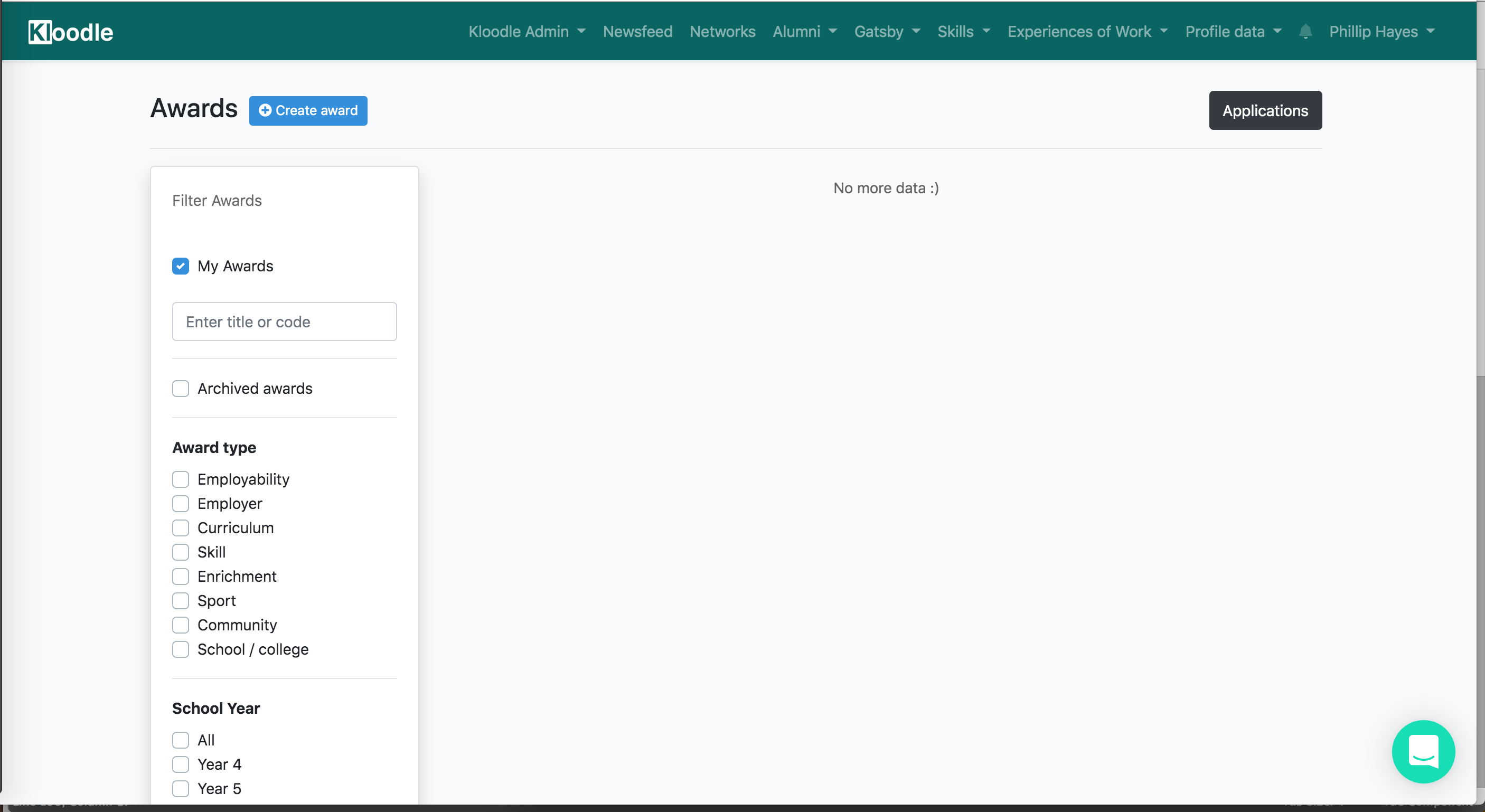
Click Create Award
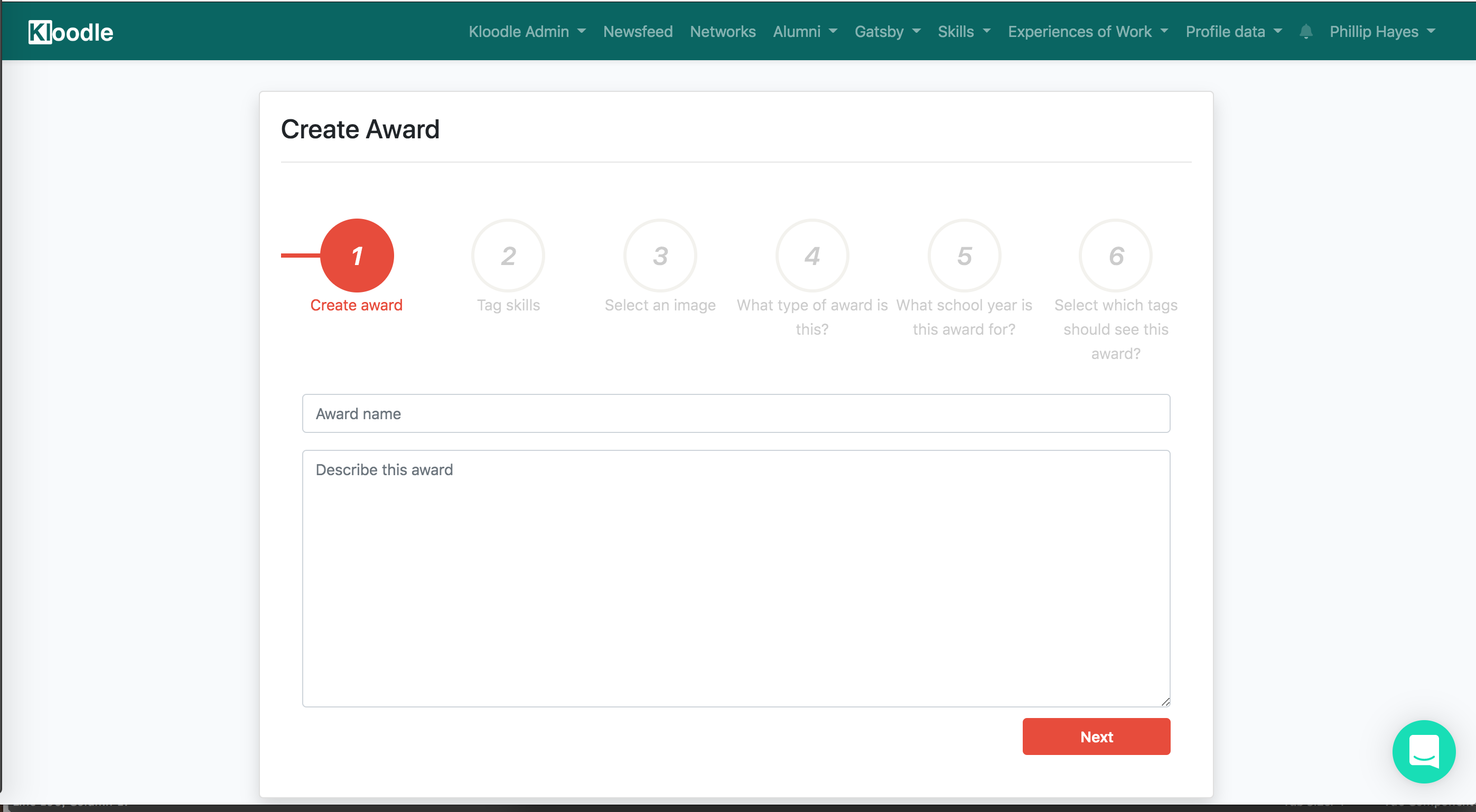
In the description, scaffold the responses you wish to see from learners by including pointers.
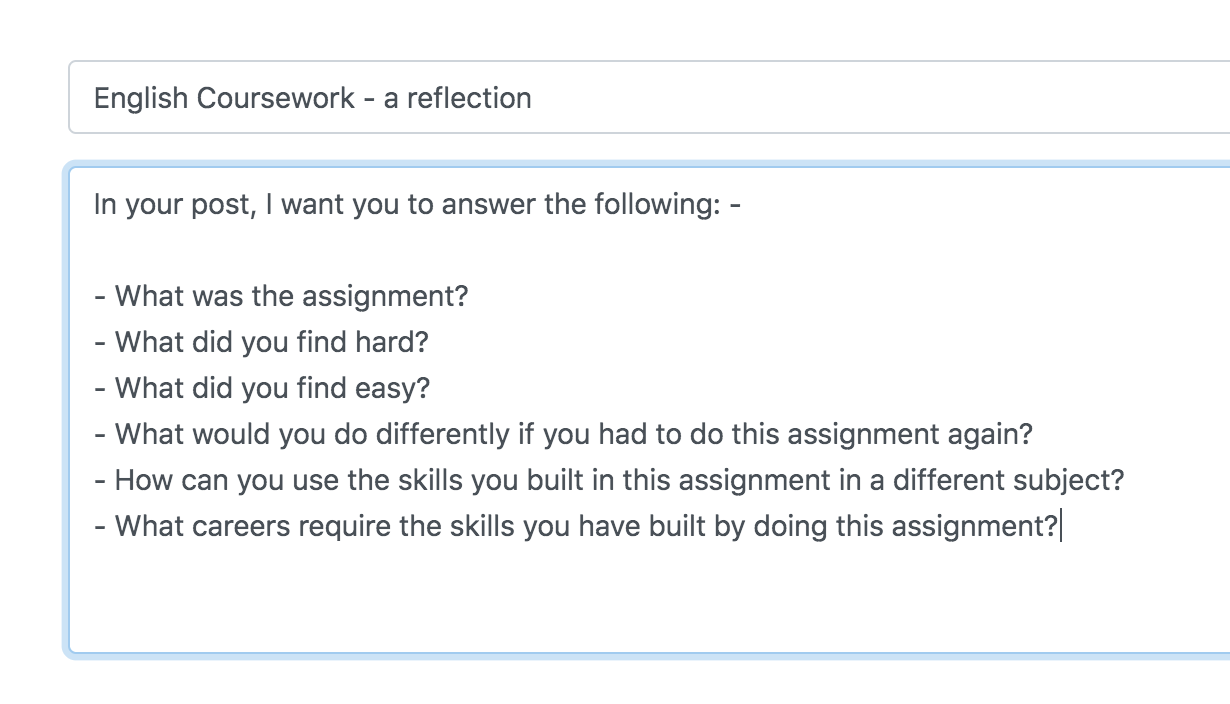
You can also set this award to specific groups of learners by selecting the relevant tag.
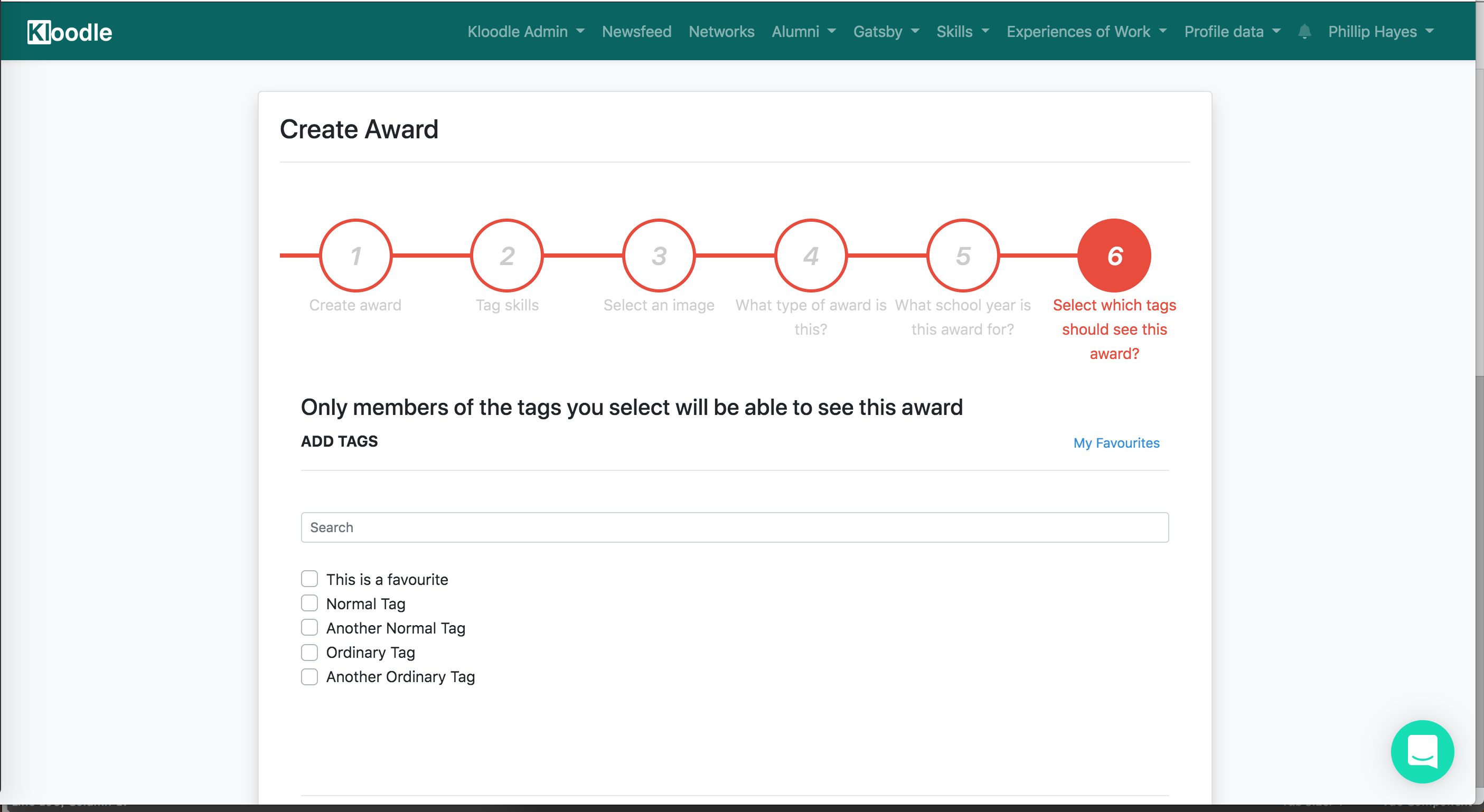
Click “Post” and an instance of your award will be created.
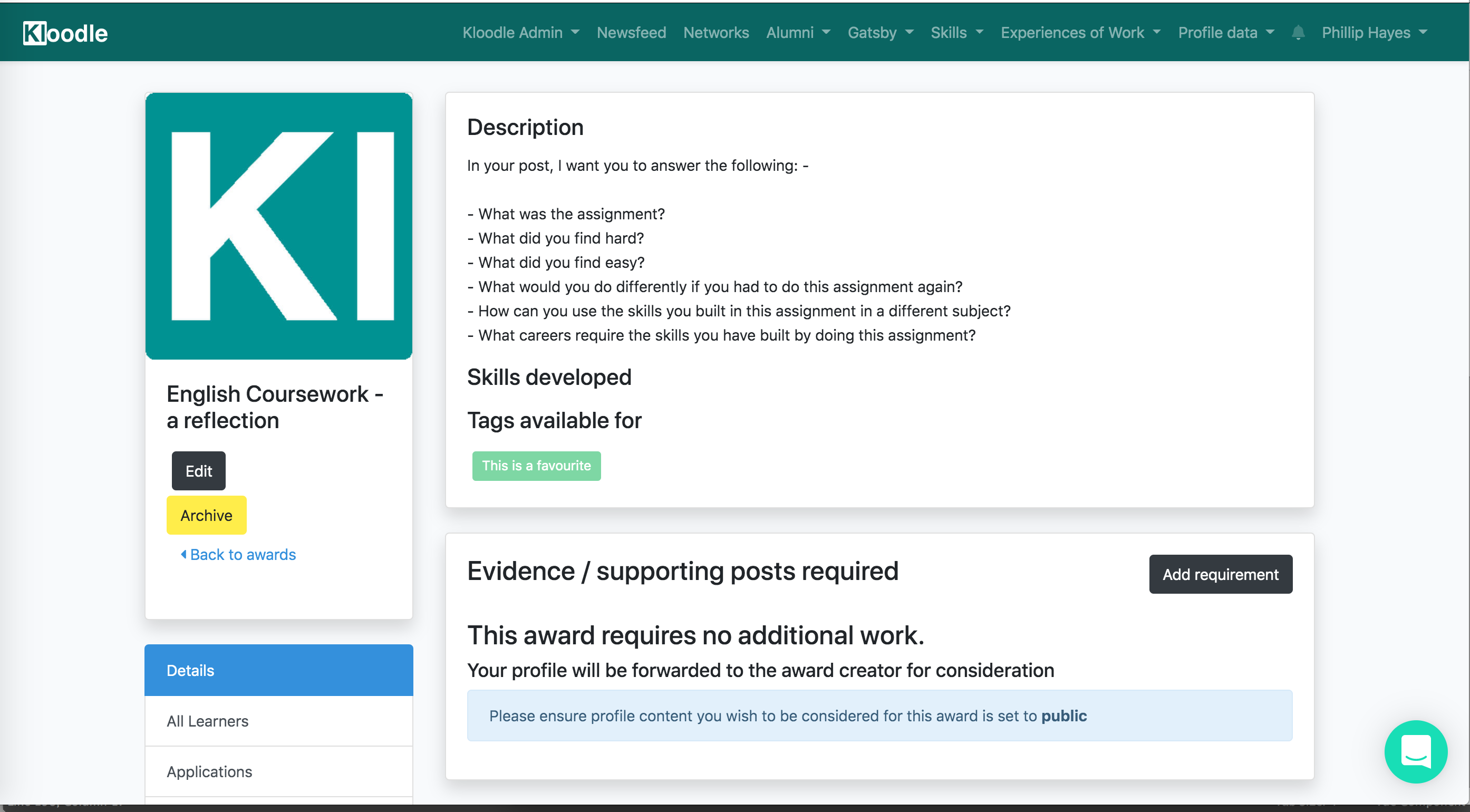
Learners will now be able to search for the award using either the title or the award code.
This could be set as a homework assignment to the class. Learners can complete this at home using their computer or smartphone. Your description will help scaffold learners, improving the quality of their answers.
Learner View
Learners can now log in and complete the award.
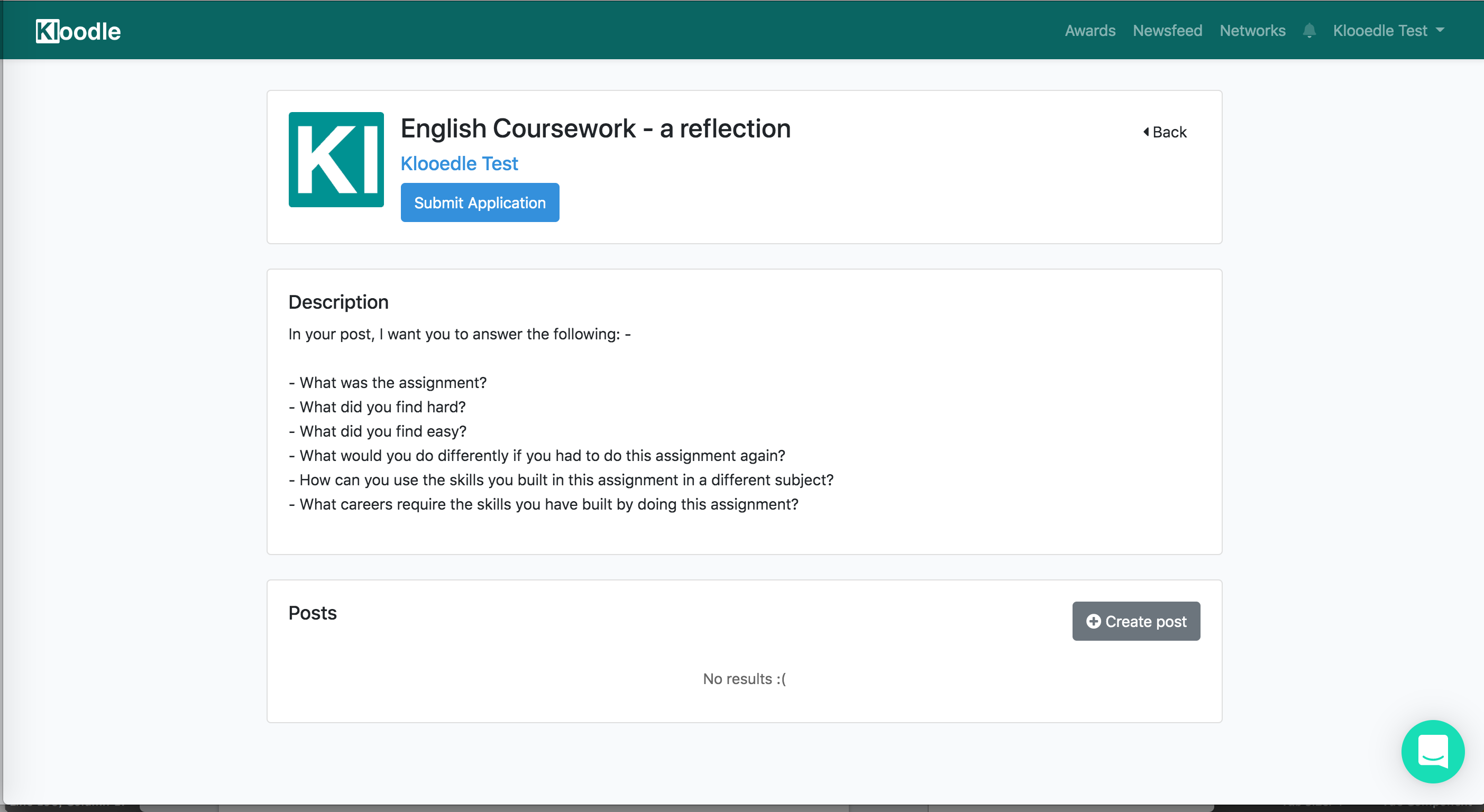
Providing feedback
You will gradually receive learners’ work as they submit. Clicking back into the award as a teacher, you can see three feeds: –
- Pending applications
- Successful applications (ones you have marked as complete)
- Incomplete applications
You can also see a raw feed of all the learners in your organisation. You can filter these down into your class using tags.
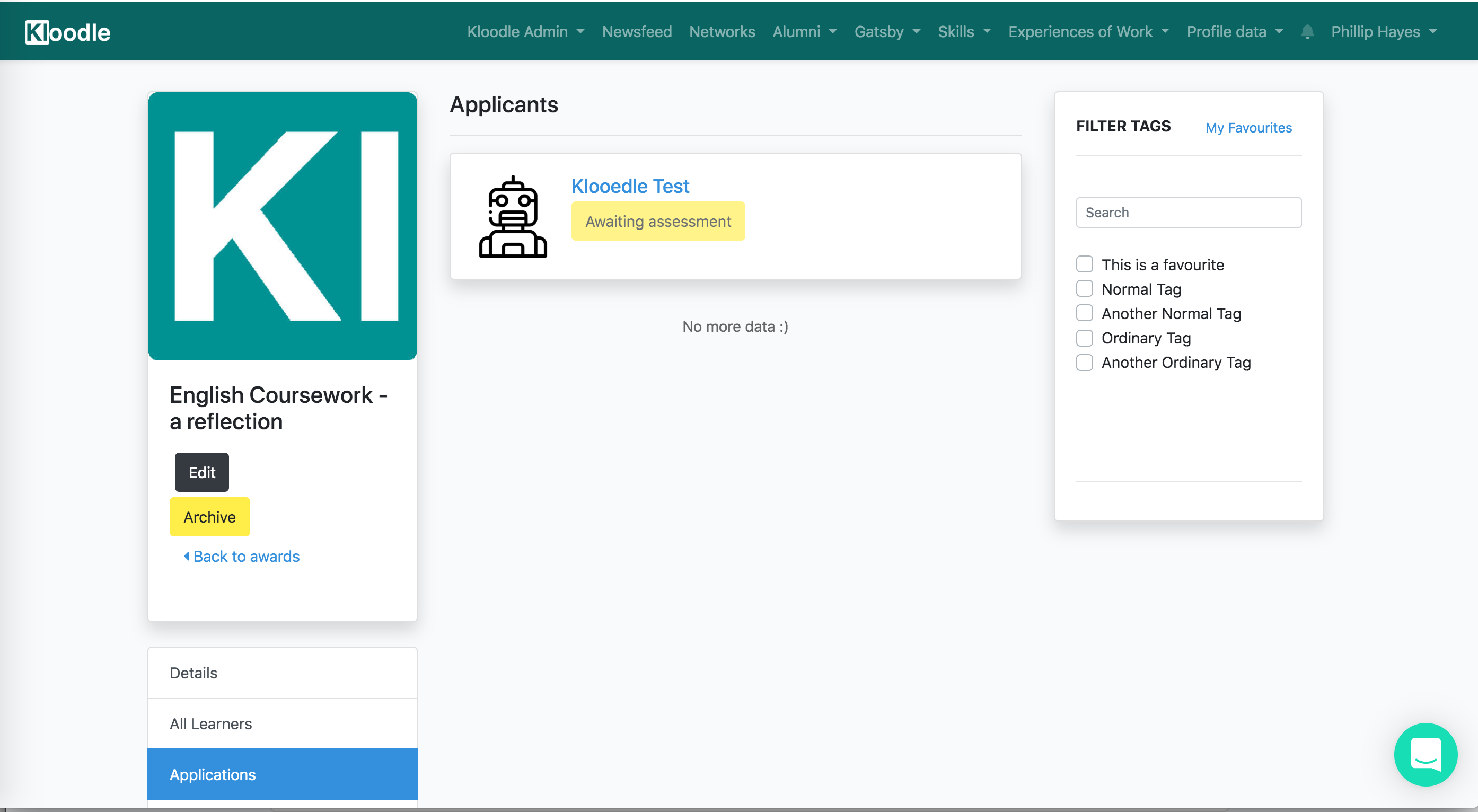
Clicking into the award, we can see the learner’s work
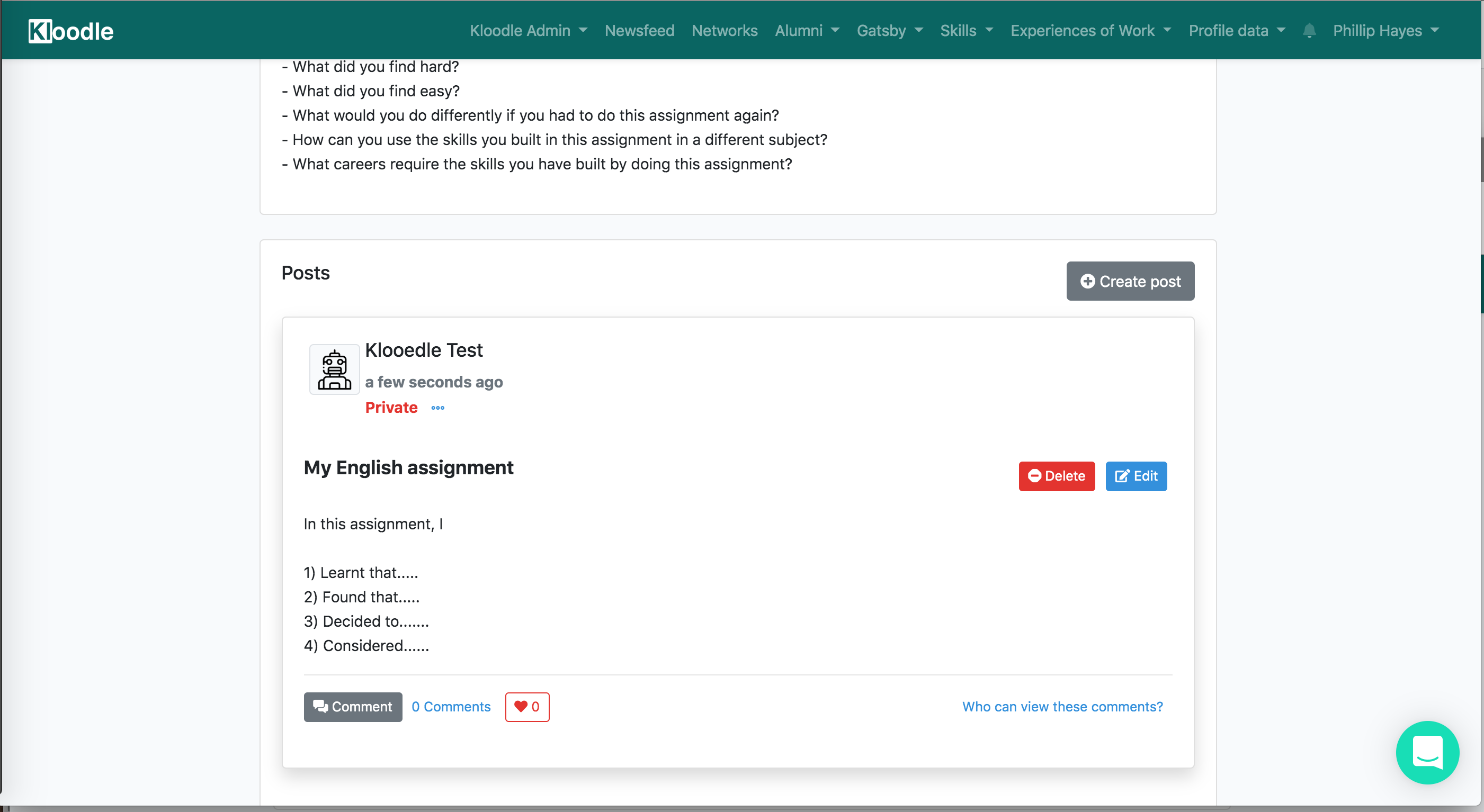
We can then provide feedback at the bottom
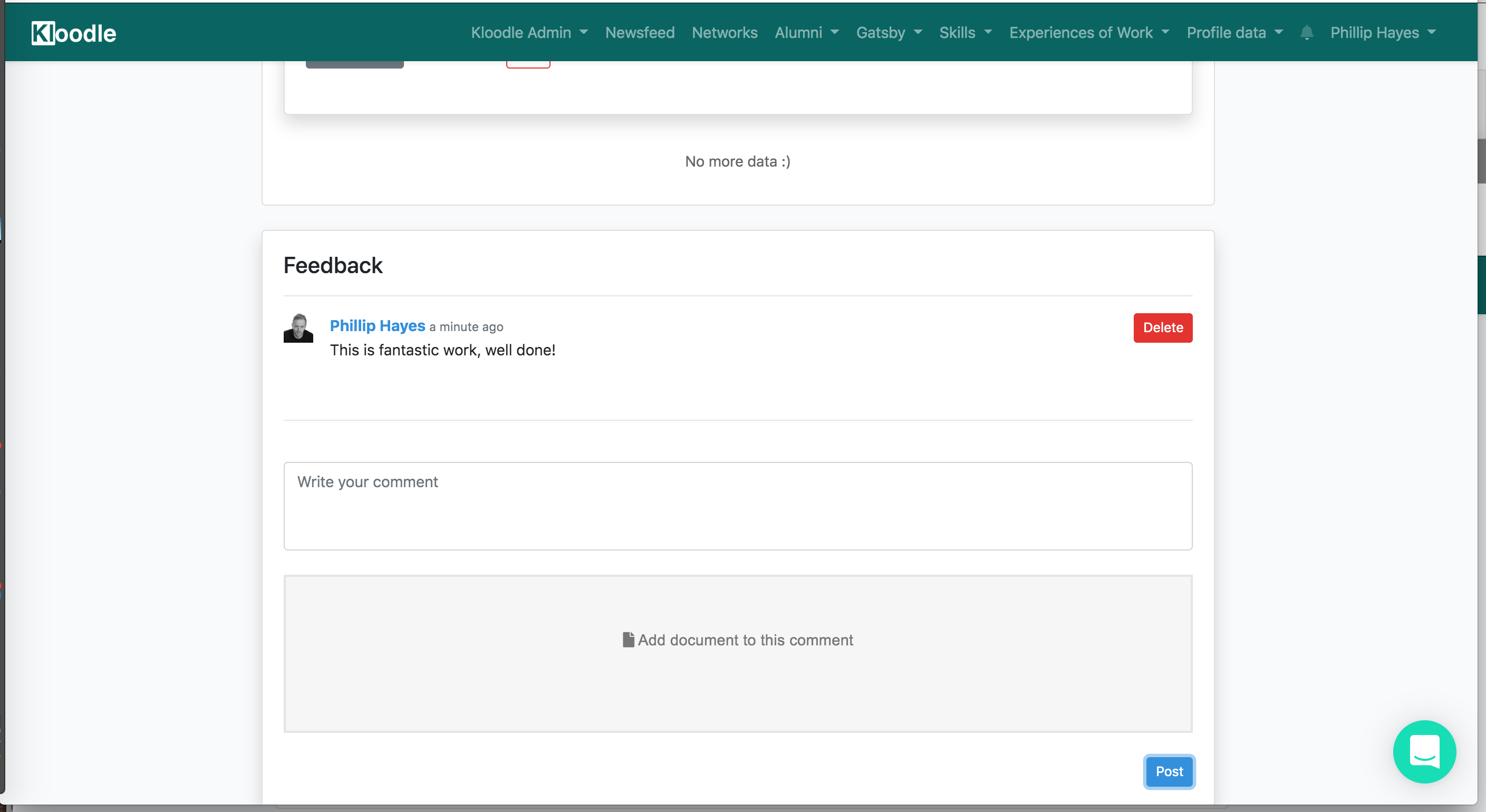
The upshot of this is that we create a series of reflections tagged against this award we can use for either: –
- Informing our future teaching practice
- Ofsted evidence purposes.
The benefits of this process also ensure that learners: –
- Understand what skills they’ve developed
- Are engaged more fully in the learning process.
If you’d like to use Kloodle in your classroom to capture reflections, please get in touch with us using the live chat facility to and we’ll get your account set up.

